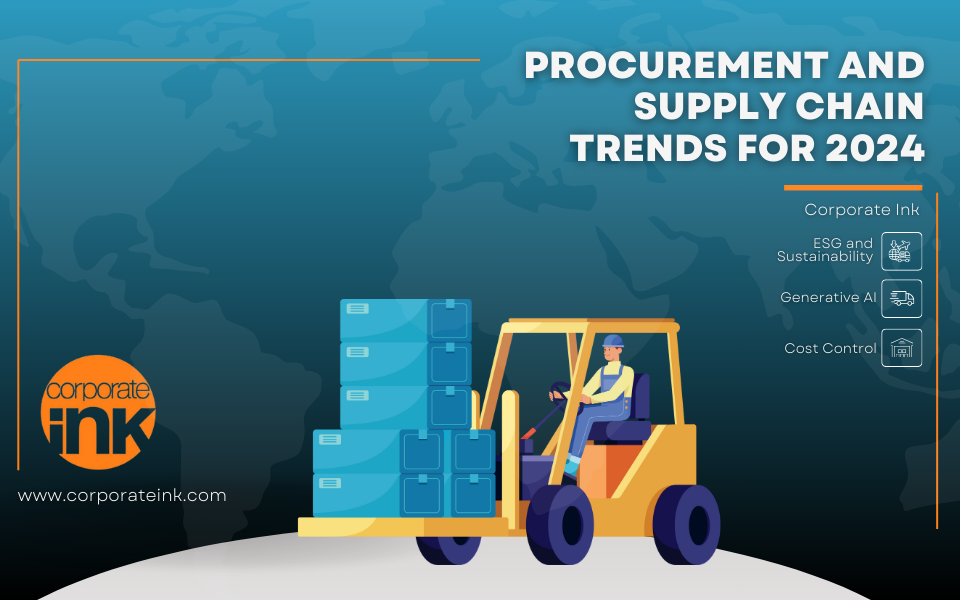
Supply Chain Marketing 2.0: Savvy Ways to Stand Out
March 23, 2018
Supply Chain Marketers, Listen Up: The Trends You Need to Know About
March 27, 2018To most, the term “supply chain” paints a monotonous picture of yellow hard hats and lengthy assembly lines on a factory floor. While this may have been an accurate depiction even ten years ago, supply chain operations have vastly evolved: Professionals in the field today study data and analytics to better forecast customer needs and spend their free time honing leadership skills rather than working labor-intensive, 12-hour shifts.
Unfortunately, the outdated view still lingers, and makes becoming a “supply chain professional” a pretty undesirable career move as nearly 70 percent of organizations say their search for supply chain talent is hampered by a perceived lack of opportunity for career growth and professional status.
While the U.S. Bureau of Labor Statistics estimates the number of logistics jobs will increase by 26 percent between 2010 and 2020, most studies have found there will not be enough qualified talent to meet demand despite expansion of supply chain degree programs at all levels. This labor divide isn’t disappearing anytime soon: Though roles in the industry are taking on a more strategic tone (building thorough business plans to digitize the supply chain, for example), job candidates – and even employees in other departments at the same companies – don’t see supply chain as an interesting or worthy career path.
Whatever you want, supply chain’s got it
Despite the erroneous external perception, the supply chain industry offers a dynamic career path for millennials entering the workforce. What millennials don’t realize is that supply chain management (SCM) offers exactly what they’re looking for: An environment that fosters collaboration and creativity, room to grow for years to come, a sustainability practice working to make the world a better (and safer) place and even challenging roles where problem-solving is a main responsibility.
However, millennials are looking elsewhere for these jobs – namely in tech and start-ups, where they know their creativity will be put to the test. Little do they know, working in supply chain offers the same challenge. SCM offers employees the opportunity to work with product development to improve existing and introduce new products, innovate internal and external processes to help boost efficiency and implement sustainable business and CSR practices to create a better world (to name a few responsibilities).
Another eye-catching and promising aspect of a supply chain career is digitization. Growing up in the onset of the first home computers, laptops, commercial cell phones and more, millennials are far more comfortable with technology than their baby boomer counterparts. Beyond knowing how to implement and understand how technology works, millennials are also far more apt to be internal advocates and change management leaders when it comes to facilitating technological adoption, which is something companies desperately need to stay competitive in this digital age.
Attracting millennial talent
Millennials want a flexible, rewarding workplace culture where they feel they have a purpose and make a difference in the company and local/global community. More than that, however, they work best in a team-oriented culture that thrives on collaboration. This collaborative attitude gives workers insight into other areas of the company and its customers. For example, someone in the sourcing department may work directly with someone who works in analytics and logistics, breaking up the monotony of daily work and allowing employees to see how other departments function.
The supply chain industry certainly isn’t “boring,” it’s – dare I say – fun. The industry is at the beginning of an exciting, innovative road that’s continuing to evolve faster each year. While millennials don’t necessarily realize that yet, it’s up to HR, supply chain managers and marketing teams at these companies to shift perceptions and prove to the younger generation everything that supply chain can be – and more.
The supply chain is having a bigger impact than ever before: Read how the function is differentiating businesses and transforming industries.






